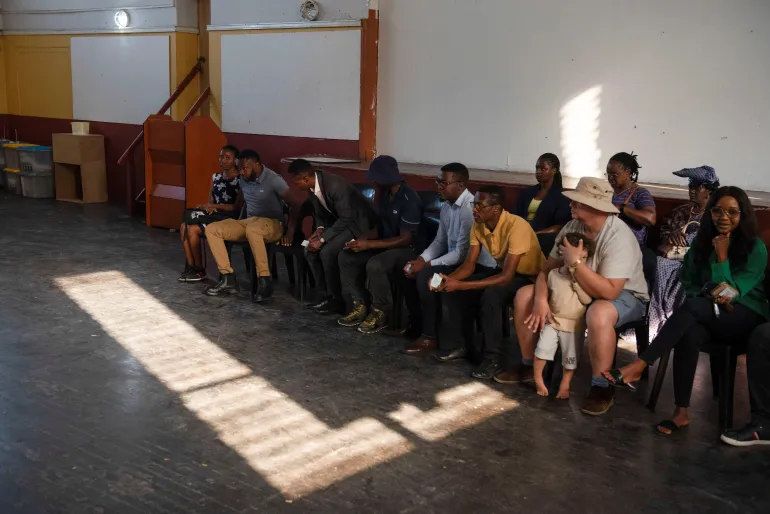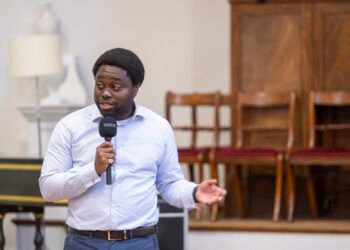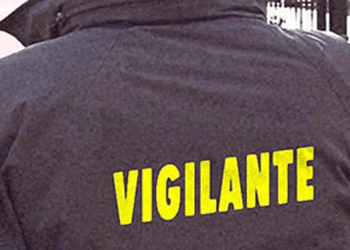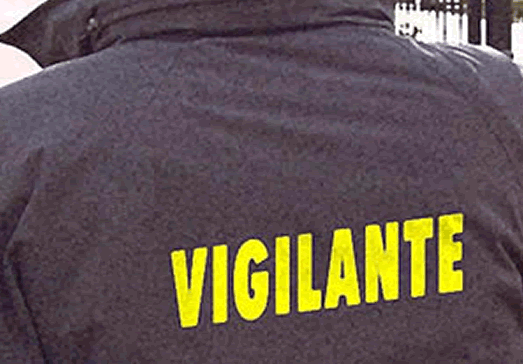Tensions are running high in Namibia after the Electoral Commission of Namibia (ECN) extended the country’s presidential and parliamentary elections into the weekend, citing widespread “irregularities” that disrupted voting earlier in the week.
Originally scheduled to conclude on Wednesday, the elections were plagued by logistical issues, including ballot shortages and malfunctioning electronic voter registration tablets.
These challenges forced many voters to endure long waits in queues, with some returning multiple times without casting their ballots. The ECN announced that polling stations would remain open until Saturday night to accommodate those who were unable to vote.
The opposition Independent Patriots for Change (IPC) party criticized the extension but urged citizens to persevere and cast their votes. “Regrettably, there has been a multitude of irregularities,” said IPC presidential candidate Panduleni Itula.
However, he added, “there was no other alternative than for the citizens to carry out what is proposed by the [ECN] to its conclusion.“
Historic Race For Namibia’s Presidency
The election pits Itula against Netumbo Nandi-Ndaitwah, the candidate from the ruling South West Africa People’s Organisation (Swapo). Nandi-Ndaitwah, currently serving as vice president, could become Namibia’s first female leader if she wins.
Swapo, which has ruled Namibia since the nation gained independence in 1990, is facing its toughest challenge yet. The party’s liberation-era credentials no longer resonate with younger voters who are grappling with unemployment and economic inequality. Namibia, though classified as an upper-middle-income country by the World Bank, remains one of the most unequal societies in the world.
Observers are questioning whether Swapo might meet the same fate as other liberation parties in southern Africa that have recently been ousted by voters seeking change.
For decades, Namibia has been hailed as one of Africa’s most stable democracies. The mineral-rich country — known for its deposits of gold, uranium, and other valuable resources — has historically held elections viewed as credible and peaceful.
However, the logistical setbacks during this election have raised concerns. At the Okandjengedi community center polling station in northern Namibia, voter Nangombe Shitaleni expressed his frustration after returning multiple times to vote. “It’s like you are a mad person,” he said, reflecting the growing discontent among voters.
Despite these challenges, Swapo remains a powerful force in Namibian politics, but its dominance is being tested by a younger electorate demanding solutions to modern-day problems.

Regional Lessons And Rising Tensions
Namibia’s electoral struggles come as its neighbor Mozambique grapples with violent unrest following disputed elections in October. The ruling Frelimo party’s victory in Mozambique has been marred by allegations of vote rigging, leading to ongoing protests.
In Namibia, questions about whether Swapo’s leadership can adapt to shifting voter expectations or if the party risks losing its grip on power are being raised.
Political analysts suggest that high unemployment and economic inequality are driving a regional trend where liberation-era parties are being held accountable for failing to address contemporary challenges.
As the extended voting period continues, all stakeholders and international observers will see if the election can proceed to a fair and peaceful conclusion, reaffirming the country’s reputation as a democratic success story.
READ ALSO: Accra Braces for Political Showdown with NDC, NPP Final Rallies



















